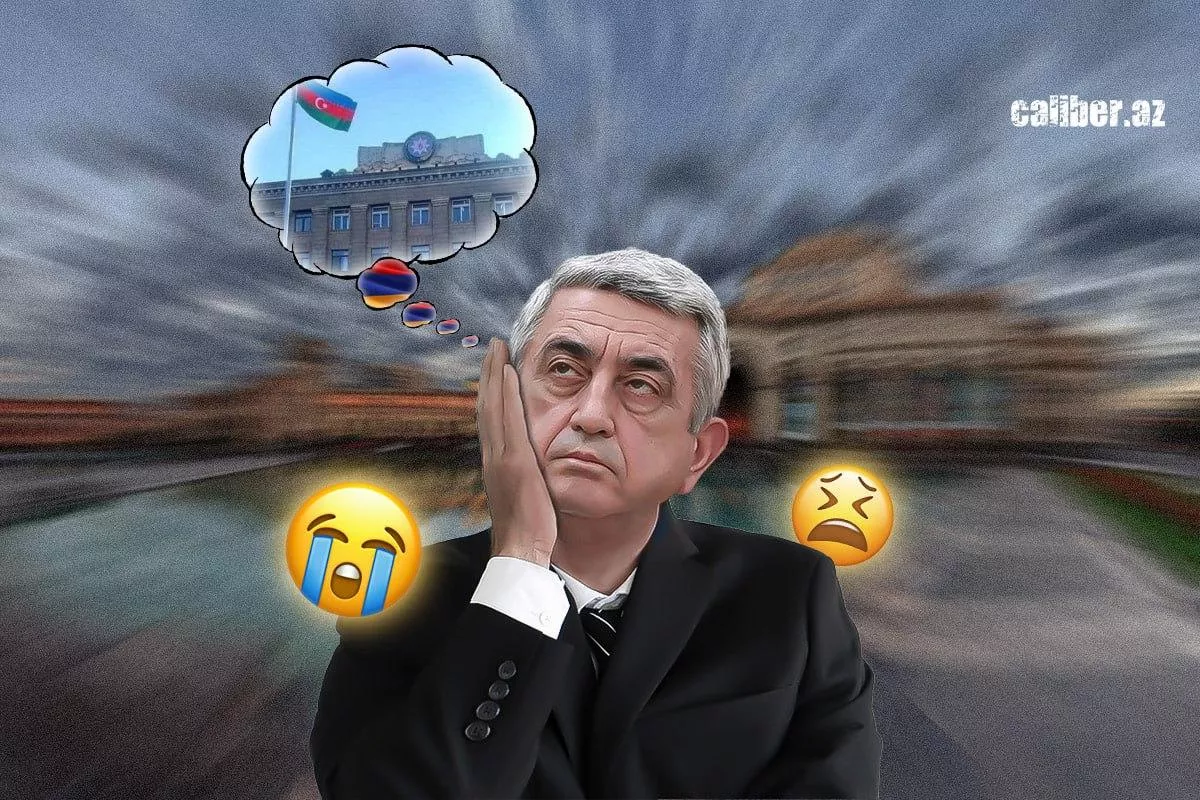Foolishness and fury: A brief look at reactions to Baku-Yerevan peace breakthrough
As expected, the signing of important documents in Washington—including the initialing of the draft “Agreement on the Establishment of Peace and Interstate Relations between the Republic of Azerbaijan and the Republic of Armenia,” an appeal to the OSCE, as well as the signing of a joint declaration containing a provision on the opening of the Zangazur Corridor—met with a mixed reaction in Armenia. The Karabakh faction, of course, expressed particular disapproval. While Robert Kocharyan and his circle are remaining cautiously silent for now, the Republican Party of Armenia, led by Serzh Sargsyan, issued its lengthy verdict on the developments.
According to Armenian media reports, Sargsyan’s party regards the Washington declaration as a “dangerous document, signed under the pressure of Azerbaijani aggression, unilateral demands, and geopolitical processes.”
We do not intend to dwell on, let alone respond to, all the homegrown claims of a provincial mindset. We will merely list a few to illustrate the full extent of Sargsyan and his associates’ intellectual state.
“…Instead of internationally recognised guarantees of the inviolability of borders, security, and territorial integrity of Armenia, the agreement contains vague and non-specific promises,” proclaims Sargsyan’s party.
And it falls flat—after all, this document is called a joint declaration precisely because it cannot contain too many details. Yet, in the initialled agreement, which the diplomatic services of Azerbaijan and Armenia published as recently as yesterday, there is a clear acknowledgement of each other’s territorial integrity within the internationally recognised borders of the former Soviet republics, and the preamble even references the 1991 Almaty Declaration. Could it be any clearer?
Meanwhile, the party continues: “Furthermore, the document lacks provisions on the protection of property, cultural and spiritual heritage of Artsakh Armenians, as well as their political rights.”
Well, that’s just dreary, since it’s not hard to notice that the document also does not include provisions on the protection of property, cultural heritage, or political rights of Azerbaijanis in Zangezur and Goycha.

And finally, the last passage, which deserves our special attention: “Armenia’s consent to the de facto dissolution of the OSCE Minsk Group—the only internationally recognized negotiation format—is an unacceptable deviation from the established principles of conflict resolution and the result of obvious pressure from Azerbaijan, which serves as an international justification for the forced expulsion of Artsakh Armenians.”
Representatives of the Karabakh clan pretend not to have understood one of the main lessons: the “Nagorno-Karabakh conflict” was not resolved through negotiations but solely by force, after which the existence of the Minsk Group became meaningless. What is now underway is the process of regulating Armenian-Azerbaijani relations, not the “Nagorno-Karabakh conflict.”
But of course, they are not so naive as to fail to see the absurdity of this and their other arguments. Sargsyan and Co. are just blowing hot air, without really believing a word of what they say. Their job is to maintain a revanchist discourse, appealing to the emotional impulses of ordinary Armenians. But here’s the problem — the Karabakh clan is widely disliked in Armenia, and no matter how loudly they shout, they will not win sympathy for themselves or their arguments.
However, to be fair, it’s not only the Karabakh clan that is upset by the Washington documents. There are other opponents of Pashinyan who reject the peace process with Azerbaijan. Yet, that hardly makes their arguments any stronger. For instance, political analyst Suren Surenyants cites, among other points, the following argument for why this draft peace agreement is supposedly “harmful” to Armenia: “Articles 1 and 6 proclaim mutual recognition, but the border demarcation is postponed to future negotiations. In other words, ‘recognition’ becomes conditional.”
Pure demagoguery! The delimitation and demarcation process, as is well known, can take quite a long time—sometimes years—and is usually based on some form of agreement.
The next remark is outright soaked in falsehood and manipulation: “Article 7 prohibits the deployment of third-country forces along the border. This is a one-sided restriction on Armenia’s defensive capabilities, whereas Azerbaijan already has Turkey’s support.” And this comes at a time when everyone knows that there are no Turkish military units in Azerbaijan, let alone on the Armenian border.
What’s even more interesting are the comments from Russian experts. Some write that the Washington agreements are nothing but a worthless piece of paper, while others claim that Armenia has surrendered its sovereignty. The funniest, however, are those analysts who somehow manage to squeeze these two completely opposite theses into a single comment.
All of the above indicates that efforts to sway public opinion against Pashinyan and his policy of normalisation with Azerbaijan will intensify, both inside Armenia and beyond. The opposition, following the decisive measures taken by the Armenian prime minister, has gone quiet but has not surrendered. The current authorities must be more vigilant than ever.








